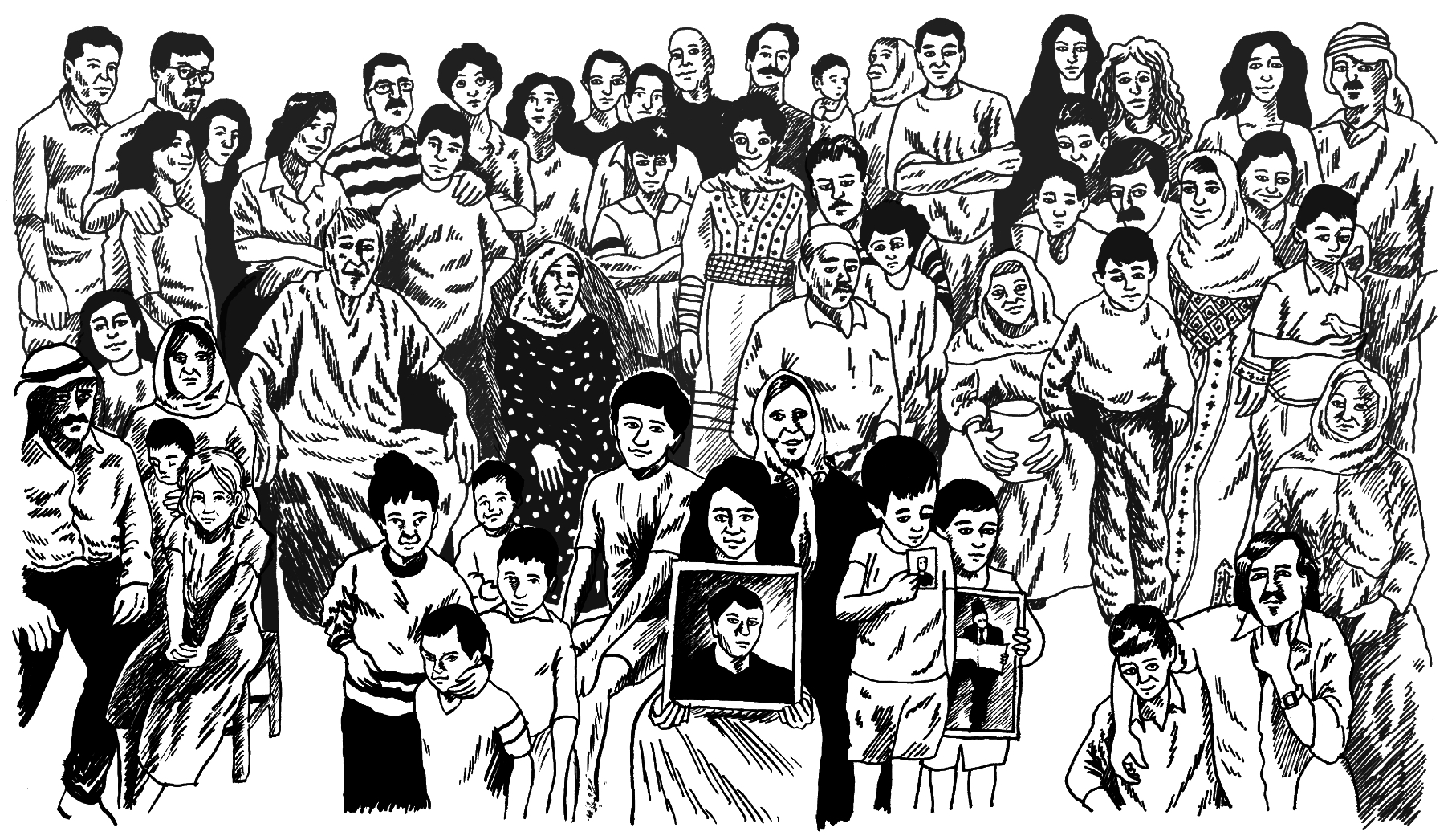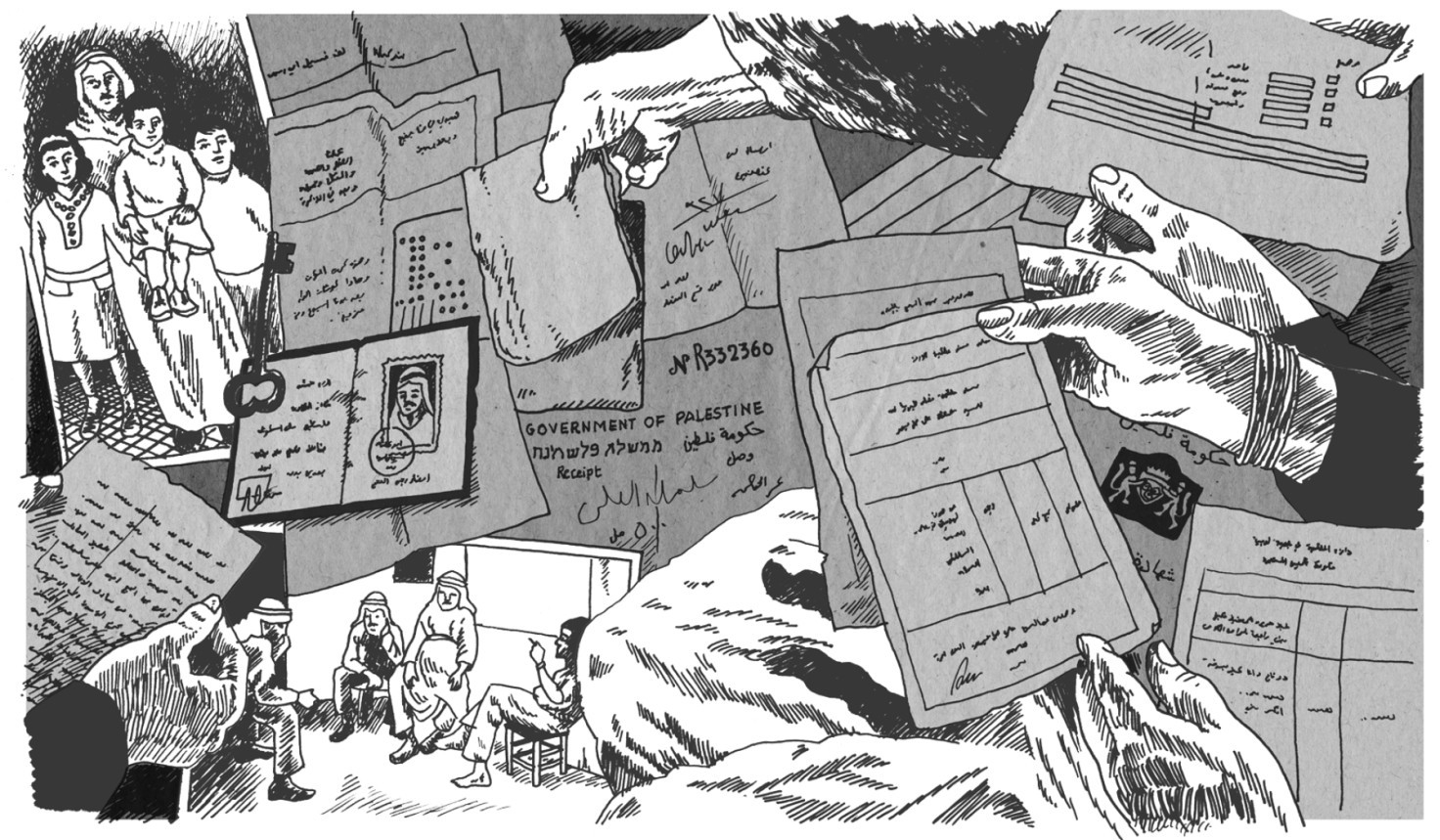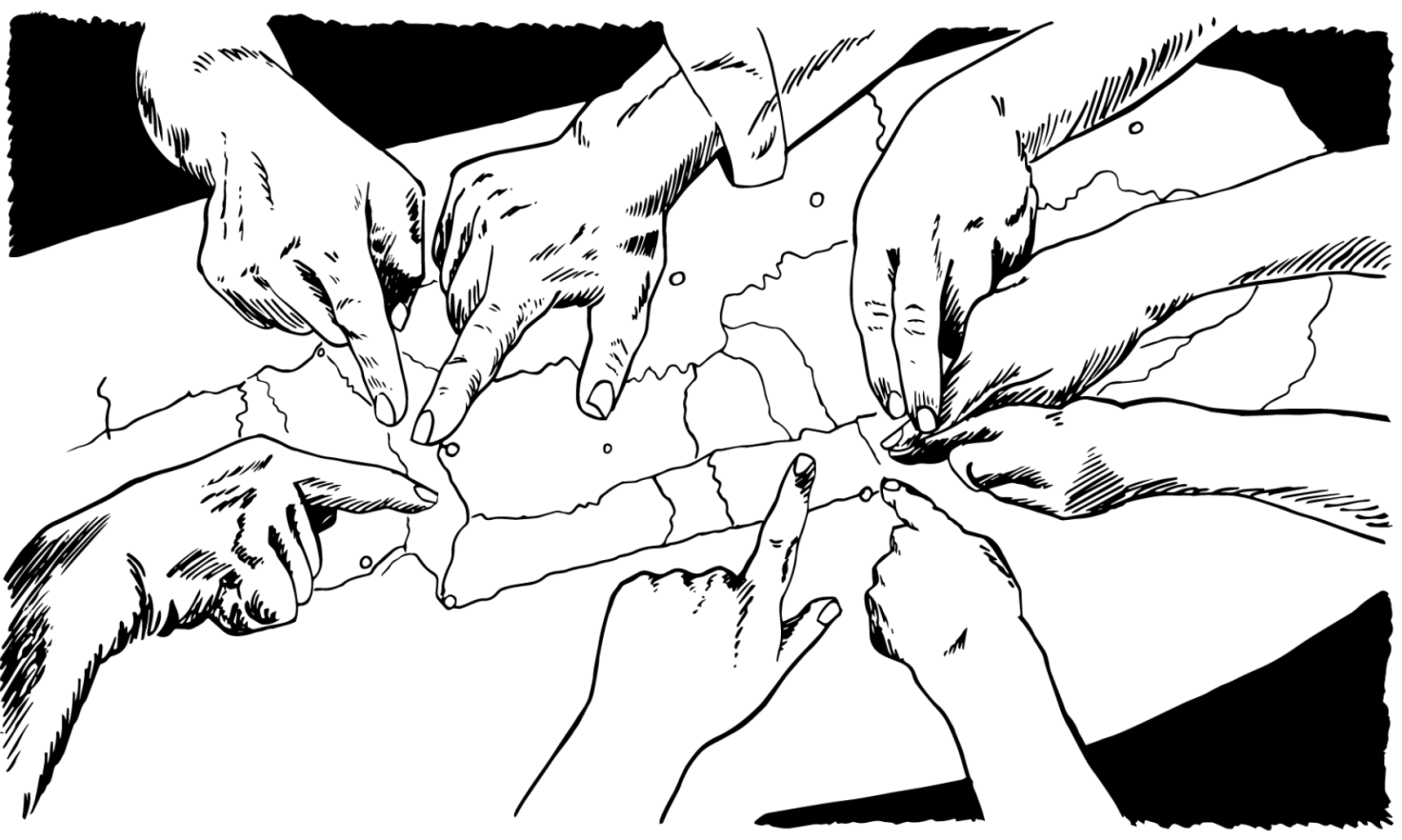The atmosphere was charged with anger and despair about the unfolding genocide in Gaza and the inability of Western institutions to recognize their own culpability and complicity. Protestors voiced countless chants, and our favorite one goes: “We don’t want your two states; we remember forty-eight.” Amidst the reverberations, a Zionist counter-protester retorted: “What exactly do you remember?” His intention, presumably, was to question the veracity of intergenerational memory of the Nakba, or catastrophe of 1948, passed down across generations of Palestinians in fragments of stories, narratives, and accounts of life before the originary dispossession. It is this memory that continues to texture our understandings and demands of the political present.
We take this statement to echo a lineage of Zionist historiography that has denied the admission of memory of the Nakba into the annals of capital “H” History. The Zionist aficionado Benny Morris long ago dismissed Palestinian oral history accounts because they contain “enormous gaps of memory, the ravages of aging and time, and terrible distortions or selectivity, the ravages of accepted information, prejudice and political beliefs and interests.” Today, it feels more necessary than ever to defend the fragmentary and multifarious record of Palestinian history, to recall the seemingly insignificant details of our ancestral lifeworlds, and to remain unmoored by political and disciplinary demands that shape what is important about the Palestinian experience. One site that invites the practice of such refusals is The Nakba Archive.


